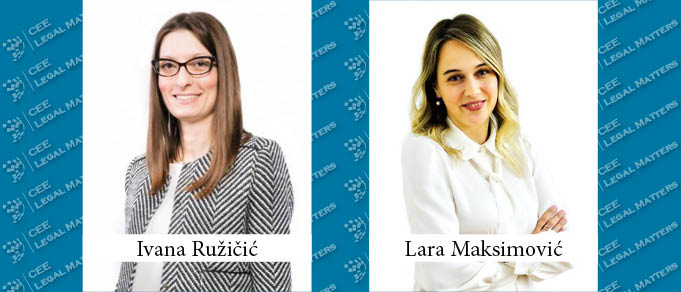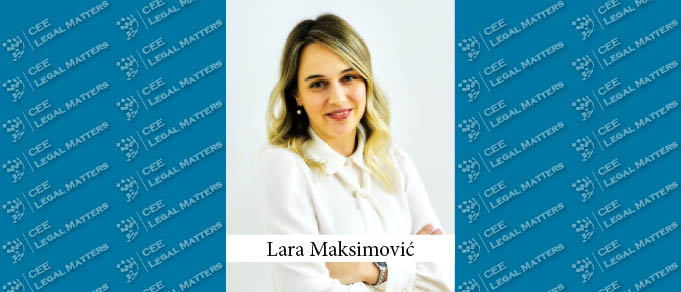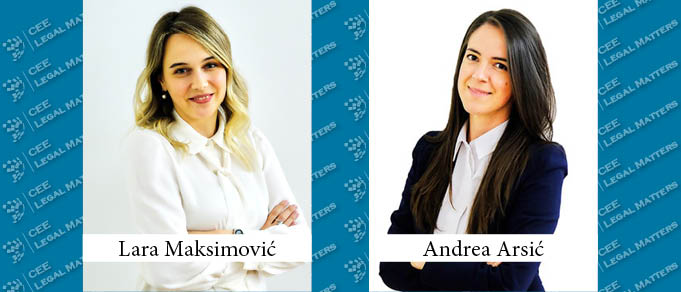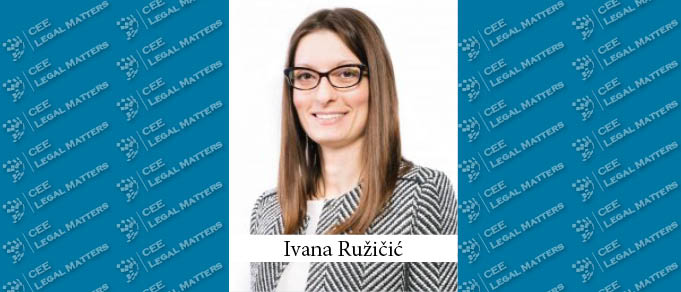According to the provisions of the Labor Law (“Law”), in case of (culpable) breach of work obligations or non-compliance with work discipline by an employee, before terminating the employment contract or imposing another measure prescribed by Law, the employer is obliged to warn the employee in writing about the existence of grounds for termination of the employment contract and to provide them with a deadline (of at least eight days from the date of receipt of the warning) to respond to the allegations included therein.
The Corner Office: 2024 Wishes and Perils
In The Corner Office, we ask Managing Partners at law firms across Central and Eastern Europe about their backgrounds, strategies, and responsibilities. As we bid farewell to 2023, this time around we turn our attention forward: What is your one main wish for 2024 and what do you see as the biggest potential risk?
Regulation of the Status of Foreigners in Serbia from now on Only Electronically
In the Official Gazette of the Republic of Serbia no. 6/2024 from January 26, 2024, the following by-laws have been published:
Are Questions on a Test Considered Personal Data?
In German case law the stance was taken recently that questions on a test undertaken by a specific individual do not constitute personal data within the meaning of the General Data Protection Regulation (“GDPR”). The court’s position is that these questions, therefore, should not be included in the copy of data issued or provided in accordance with Article 15(3) of the GDPR (right to access to personal data undergoing processing).
What is the Tax Status of a Foreign Citizen who Performs Director’s Duties in Serbia Outside of Employment?
A foreign national, as well as a domestic citizen, assumes the status of a self-employed person when performing the duties of a director outside an employment relationship, i.e., based on a contract governing the mutual rights and obligations of the director, unless insured on a priority basis.
Extended Scope of the Law on Electronic Media
The new Law on Electronic Media (“the Law“) has been published in the Official Gazette of the Republic of Serbia, no. 92/2023, and came into effect on November 4, 2023.
Abuse of the Right to Temporary Incapacity for Work – Will the Law Amendments Prevent Such Practices?
In the Official Gazette of RS no. 92/2023, dated October 27, 2023, amendments and supplements to the Law on Health Insurance were published, becoming effective on November 4, 2023 (“the Law“).
Tobacco and Related Products in the Light of Amendments of the Law on Tobacco – Is Regulation of Related Products Market Overdue?
The Law on Amendments to the Law on Tobacco (“the Law”) was published in the Official Gazette of the RS no. 92/2023 of October 27, 2023. The subject amendments entered into force on the eighth day upon the day of publishing i.e., on November 4, 2023, with several exceptions.
New Obligations for Users of the System of Electronic Invoices
On August 25, 2023, the Government of the Republic of Serbia adopted the Personal Data Protection Strategy for the period 2023-2030 (“Strategy”).
What is the Deadline for Enacting Decision on Termination of Employment Agreement?
As we have written about in one of our previous texts, the Labour Law (“the Law“) stipulates, among other, that an employee’s employment may be terminated if there is a justified reason pertaining to employer’s needs, i.e., if due to technological, economic or organisational changes the need for certain job ceases or if the workload is reduced.
What’s the Cost of Unlawfulness – Part 2
In one of our previous texts (available here) we discussed misdemeanors, hence in order to analyze in more detail legislator’s penalty policy pertaining to legal entities we will here elaborate the economic offences which, along with criminal acts and misdemeanors, also fall into the penalty corpus of our legal system.
What’s the Cost of Unlawfulness – Part 1
According to the definition contained in the Law on Misdemeanors (Official Gazette of RS no. 65/2013, 13/2016, 98/2016 – decision of CC, 91/2019, 91/2019 – other law and 112/2022 – decision of CC) (“the Law“), misdemeanor is an unlawful act established as misdemeanor by law or other regulation of a competent authority and which is subject to misdemeanor sanctions.
Serbia Holds Its Breath for Elections and Construction Boom: A Buzz Interview with Ivana Ruzicic of PR Legal
With yet another election cycle impacting legislative activity in Serbia, few – but noteworthy – updates warrant attention, according to PR Legal Managing Partner Ivana Ruzicic. Notably, land conversion fees have been eliminated, potentially unlocking vast construction opportunities, while the excise tax framework is being modernized, with a centralized electronic system set to streamline processes.
Novelties Pertaining to Excise Taxation
The Law on Amendments to the Law on Excise (“the Law”) was published in the Official Gazette of the Republic of Serbia no. 75/2023 of September 6, 2023, and it entered into force on the eighth day after its publishing, i.e., on September 14, 2023, while it shall be applied from October 1, 2023.
The Government of the Republic of Serbia Adopted the Personal Data Protection Strategy
On August 25, 2023, the Government of the Republic of Serbia adopted the Personal Data Protection Strategy for the period 2023-2030 (“Strategy”).
Conclusion of Contract by Using Emoji – How Informal the Informal Contracts can be?
Meeting of minds of the contracting parties undeniably represents the very foundation of the contract law, hence both theory and practice agree that there is no agreement without it. However, when it comes to the manner of expressing such will, the situation is somewhat different.
Amendments to the Law on Planning and Construction – Abolishment of Paid Conversion, Focus on Energy Efficiency and Green Construction
Amendments and supplements to the Law on Planning and Construction (“Law”) were published in the Official Gazette no. 62/2023 from 27 July 2023 and entered into force on 4 August 2023, whereas certain provisions of the Law will enter into force in 2024 and 2026, respectively.
Liberalization of Rules for Residency and Work of Foreigners in the Republic of Serbia
Amendments to the Law on Foreigners (Official Gazette of RS no. 24/2018, 31/2019 and 62/2023) and the Law on Employment of Foreigners (Official Gazette of RS no. 128/2014, 113/2017, 50/2018, 31/2019 and 62/2023) (“the Laws”) were published in the Official Gazette of the Republic of Serbia no. 62/2023 of July 27, 2023, and entered into force on August 4, 2023.












